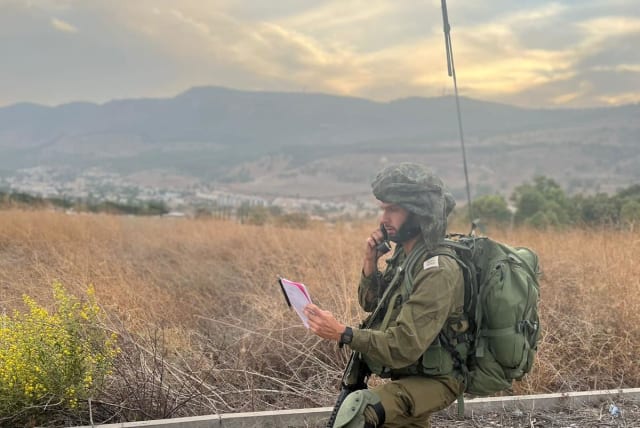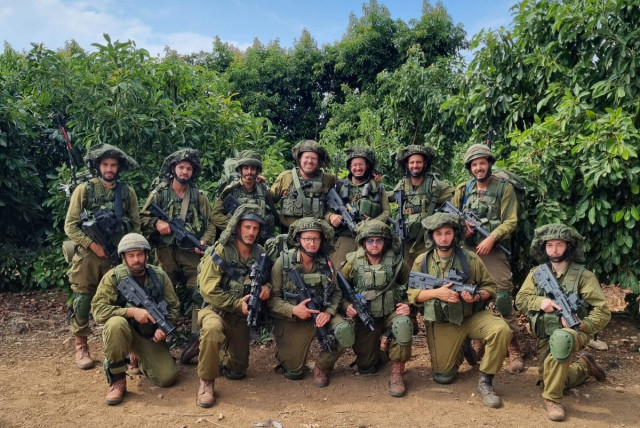Communications officer discusses importance of communication in war

When the war broke out on October 7, Roei was at home and was woken by sirens at 6:30 in the morning.
In every military operation carried out by the IDF, both in general and in this war specifically, communication is key. With the correct communication, various branches of the army can be kept updated, and operations can run as smoothly as possible.
Captain in reserves Roei is a communications officer in the 6th brigade, and he and his team are responsible for making sure the brigade's communication devices are running smoothly. As communication officer, Roei's job is to accompany the soldiers into the battlefield and ensure smooth communication abilities.
He learned of the importance of proper communication systems during Protective Edge in 2014. At the time, he was completing his officer training and learned first-hand how essential communication is to the operations, especially a command and control system they use that enables communication between all branches of the army.
Roei's battalion has been up north for the past three weeks and is ready for anything.
When the war broke out on October 7, Roei was at home and was woken by sirens at 6:30 in the morning.
"We immediately understood that this wasn't normal," he told The Jerusalem Post. "When we came out of the safe room, we turned on the news and saw the infiltration. I checked my phone to look for more information and realized that they would be calling up reserves."
The first thing Roei did was to contact his soldiers to explain to them the importance of what was happening.
By the time Roei got the official call up, he was already on the way to his base, and picked up two soldiers on the way.
"Our initial concern was to get up north to make sure the situation wasn't heating up there," he said. "The battalion was ready by six or seven in the evening with all our equipment. We were ready for any command."
At first, they thought they would be sent south to help with the fighting around Gaza, but in the end, they weren't needed there and were sent to a different location in the North to await orders.
For the first week of the war, the battalion stayed at this location, which was very close to the border, and waited.
"They took our phones away so that we couldn't be tracked," he said. "If Hezbollah recognized where we were, they would know where to aim."
That week was difficult for Roei and his soldiers as they didn't know what was happening because they didn't have their phones.
In the second week, the team was moved to a different location to make sure they hadn't been located by the enemy.
Inside the fog of war
Only last week, when they moved around a few times, did they have more of an idea of what's happening.
"Last week, we were able to fall into a better routing because we understand this can go on for much longer," he said.
But while his battalion has moved about repeatedly and hasn't had much idea of what's happening, Roei said the morale remains incredible.
"The soldiers in the platoon and the battalion showed up at 140% at very short notice," Roei told the Post. "Everyone has been incredible. The situation isn't easy, but we try as much as possible to keep up a routine and high morale. The soldiers understand the significance of what they're doing here.
"The donations have been heartwarming. The civilians see us in uniform, and it just gives them such a feeling of safety. They've given us everything we could need."
Jerusalem Post Store
`; document.getElementById("linkPremium").innerHTML = cont; var divWithLink = document.getElementById("premium-link"); if (divWithLink !== null && divWithLink !== 'undefined') { divWithLink.style.border = "solid 1px #cb0f3e"; divWithLink.style.textAlign = "center"; divWithLink.style.marginBottom = "15px"; divWithLink.style.marginTop = "15px"; divWithLink.style.width = "100%"; divWithLink.style.backgroundColor = "#122952"; divWithLink.style.color = "#ffffff"; divWithLink.style.lineHeight = "1.5"; } } (function (v, i) { });

